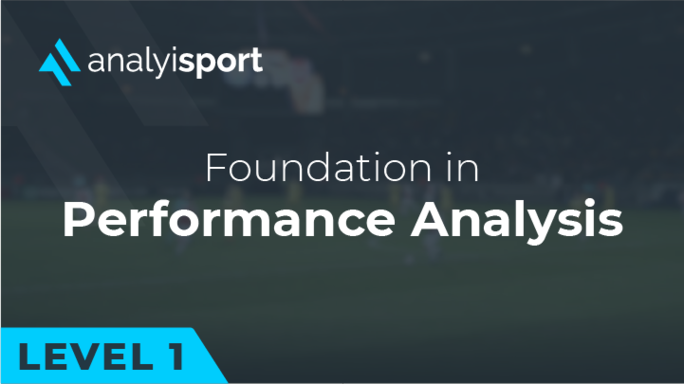What is The IFAB – The International Football Association Board
When we conjure up well-known footballing acronyms, IFAB isn’t the first to trip off the tongue. We’re more likely to shout out the likes of FIFA, UEFA, EPL or even MOTD first.
Yet, IFAB plays a hugely significant role in the beautiful game and this organisation is inextricably linked to the way the sport has evolved in the last two centuries.
The IFAB – The International Football Association Board is the governing body responsible for setting, amending and clarifying the Laws of the Game. And, whilst the Laws of the Game is a relatively thin handbook, it governs the most played and watched game in the world.
But who acts as the guardian of these sacred footballing Laws?
IFAB – and it has been doing so for more than one hundred and fifty years.
Historical Evolution of the IFAB
To fully appreciate the role of IFAB in world football and its role in the maintenance and amendment of its unified rules, it is important to recognise its relationship with the official birth of the sport.
In 1882, Ebenezer Cobb Morley wrote a set of unified Laws to be used across the length and breadth of England. A year later, the Football Association (FA) was formed and organised football was established in England.
Several years later in 1886, The IFAB came into being. Instigated by the English FA, The IFAB was brought into being in order to ensure the Laws of the Game were applied globally. Football was growing in popularity and countries were liable to adopting their own slightly different rules and regulations.
Two representatives from the English, Welsh, Scottish and Northern Irish FA met in June 1886 and The IFAB was born. Established as the guardians of the game, IFAB’s role has remained the same since its inception – to preserve, monitor, study and where appropriate improve the Laws of the Game.
IFAB presides over the handbook of rules for the game adored by so many. This rule book is not a tome, it is indeed pretty lightweight, with a total of seventeen Laws to adhere to. They cover everything from the field of play, duration of the match, referees and players’ equipment.
In the last hundred years, The IFAB has been responsible for implementing several notable changes, perhaps the most amended rule of all, the offside rule. The goal area was first brought into being in 1869 with corner kicks coming in 1872.
Up until 1909, the role of the goalkeeper was vague. Goalkeepers were not required to wear a different coloured jersey, indeed multiple players would be able to handle the ball. IFAB formalised the role of the goalkeeper in 1909 and created a specific set of rules for this player.
In 1912, goal-keepers were no longer allowed to handle the ball outside the penalty area. And, in 1920 changes were made that meant players could not be classed as offside from throw-ins.
More recently, IFAB have introduced new technologies such as VAR, automated offsides and body cams. These technological advancements may appear controversial but they have been created with the intention of reducing the number of controversial decisions during the game.
Decision-Making Process
In 1913, FIFA (Fédération Internationale de Football Associations) joined The IFAB and FIFA representatives were added to the IFAB.
Up until this point, it had been possible for one of the four home nations to go against the wishes of FIFA and create or amend existing laws.
Currently, in total FIFA representatives hold a total of four votes and the representatives of the four home nations also carry one vote each.
When it comes to making amendments to the rules, there must be a majority of six for the changes to be brought into place. This means the English, Welsh, Scottish and Northern Irish FA’s do not have an overarching sway over decisions that are made.
Changes to rules can only be made at the Annual General Meeting (AGM). This is held in February or March of each year and takes place in either England, Northern Ireland, Scotland, Wales, or in the year of a FIFA World Cup, a country selected by FIFA.
The preparatory meeting for the AGM is held in November, prior to the AGM in the spring. At the Annual Business Meeting (ABM) items suggested by one of the six football confederations or national football associations can be raised and discussed. Experiments or trials may be initiated and implemented after this annual meeting but no changes to the Laws can be decreed until the AGM.
During the AGM meeting, any proposals are voted on and approved or rejected by the panel. Changes to the Laws are made but do not need to be implemented until the start of the following football season.
Countries around the world that are still involved in their national league season after June 1st are entitled to defer these changes but all other associations will be expected to adopt new Laws in time.
No alterations, changes or deviations to the rules set by IFAB can be made by any organising body in any country around the world.
In recent years IFAB have found themselves focussed on participant behaviour on the field of play. Behaviour of participants at all levels of football has led to a struggle in the retention of referees. Addressing this issue is a current priority for the guardians of the game.
Lukas Brud, IFAB Secretary also believes that technology will play an ever increasing role in the future of football. Whilst the use of technology continues to stir passionate and often conflicting debate, IFAB believe that the likes of VAR and semi-automated offside technology will ensure that football strives to be fairer than it’s ever been before.
Global Impact and Challenges
Any changes made by IFAB impact every team across the world and every game of football played. Changes or amendments made ‘must be inclusive and applicable to every football match, from children playing in a small village to the FIFA World Cup.’
Each law change must continue to grow the sport and its appeal to all people across the globe. This means that IFAB shoulders a momentous burden – balancing the advancement of the sport and the enjoyment of those playing it, no matter where they play.
In recent years they have dealt with common issues arising in many national associations around the world.
In 2019/2020 season IFAB introduced temporary dismissals, often called sin-bins at grassroots levels. This was in reaction to the sometimes less than honourable behaviour on the field of play, often directed towards the referee.
And, with many incidents of dissent by both players and managers being witnessed in top-flight leagues, it’s possible that IFAB could introduce this across all leagues. But possibly not for the next few years.
Time-wasting is another topic being discussed around the IFAB table. Average-ball-in-play is at its lowest ever. Whilst it’s accepted that VAR contributes to this, IFAB still believe more can be done to reduce time wasting. Additional time added to the end of a match or stop-the-clock when the ball goes out of play are tactics currently being employed to address this.
IFAB considers itself as the guardian angel of football, convening annually to ensure the sacred rules of the game are working for the good of the players, the fans and the sanctity of the sport. It reacts where required with the simple vision of growing the beautiful game and allowing the people who play and watch it to do so fairly and safely.
Whilst it may not be a sporting acronym that rolls off the tongue, it’s actually one that we should all treasure and value. It protects the game we love.
Related Courses:

- Level 1
- Course
Level 1: Foundation in Recruitment Analysis in Football
£70.00
Share this article
Our Learning Pathways
AnalyiSport is for everyone who is passionate about analysis in football. Where are you in your development journey?
Become a Football Scout
As more clubs than ever look to build data into their recruitment process, an understanding of recruitment analysis is your ticket to success in the game.
Related Articles
Our team provides news and insights from the cutting edge of football analysis.






